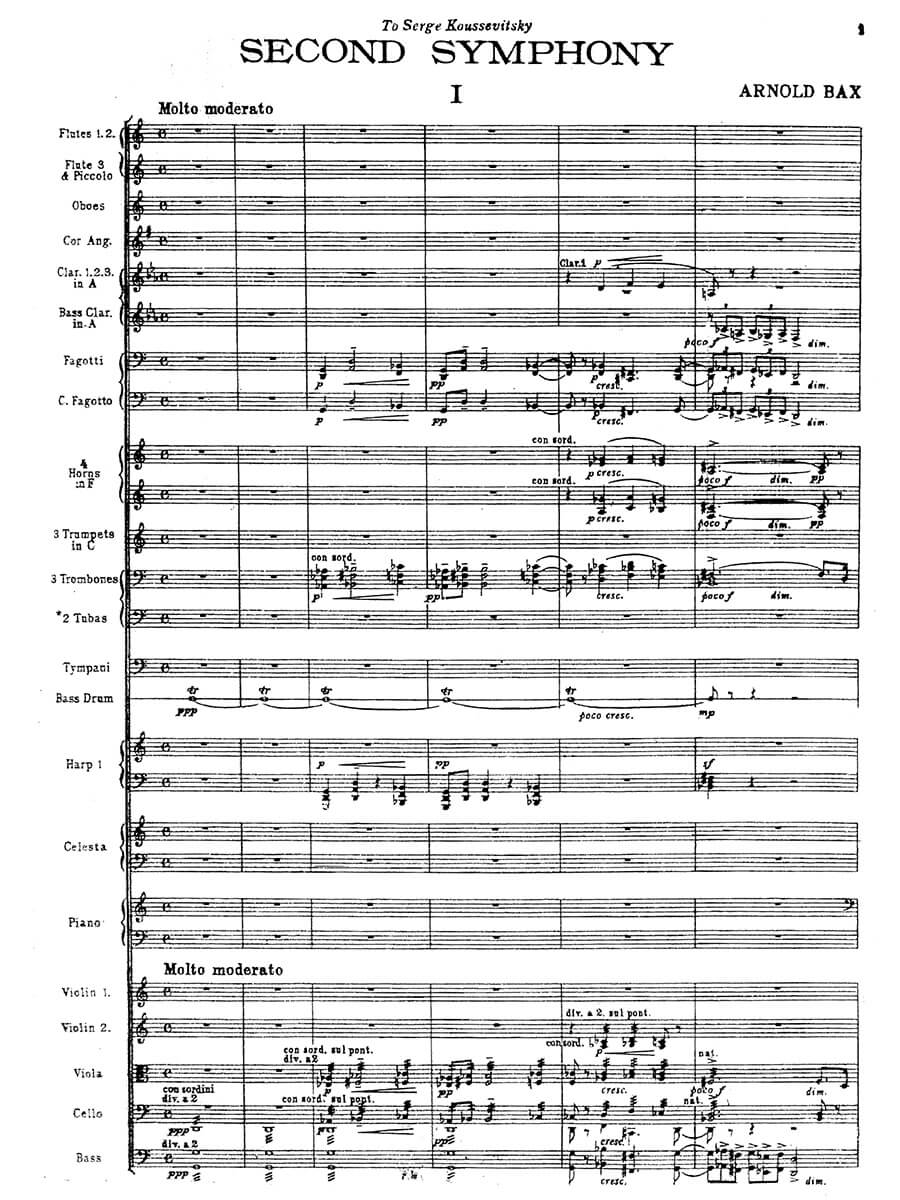Symphony No. 2
Bax, Arnold
38,00 €
Preface
Arnold Bax – Symphony No. 2
(b. Streatham/London, 8 November 1883 – d. Cork/Irland, 3 October 1953)
(1924-26)
I Molto moderato (p. 1) – Un poco più mosso (p. 13) – Allegro moderato (p. 16) – Con vivo (p. 32) – Molto largamente (p. 36) – Moderato semplice (p. 40) – Poco più lento (p. 45) – Lento espressivo (p. 49) – Allegro moderato (p. 51) – Riotously (p. 61) – Molto energico (p. 62) – Moderato (p. 65) – Allegro moderato (p. 70) – Molto moderato (p. 72) – Vivace (p. 75)
II Andante (p. 76) – Poco meno mosso (p. 82) – Tempo primo (p. 84) – Più mosso (p. 95) – Poco largamente (p. 98) – Tempo primo (p. 101)
III Poco largamente (p. 108) – Allegro feroce (p. 109) – Meno mosso (p. 136) – Molto largamente (p. 144)
Preface
Arnold Bax grew up in very well-off circumstances and enjoyed a rather liberal and fundamentally artistic upbringing. From 1893, the family moved into the idyllic parkland grounds of Ivy Bank in Hampstead High Street, a true “island of the blessed” on the periphery of cosmopolitan restlessness. The dreamy element in his psyche, feverishly longing to escape the everyday and often leaning out blindly and ignoring danger, which was a prominent character trait, is probably rooted in this family seclusion, which took little notice of the brittle outside world. The world of dreams could expand almost endlessly here, and a creatively open-minded young person like Arnold found material for life in these dreams, which actually sufficed for almost an entire lifetime. His material circumstances were so generous that he never had to worry about earning an income, and so he almost never worked as a teacher. His younger brother Clifford made a name for himself as a respected poet for his time, while Arnold showed eminent musical talent.
From September 1900, he attended the Royal Academy of Music – the more progressive of the two London institutions (the Royal College of Music, which was founded later, had the more renowned teachers with the Brahms epigone Stanford and Hubert Parry – Ralph Vaughan Williams, Bax’s important colleague and friend, had studied there). He studied composition with the Lisztian Frederick Corder and quickly gained a reputation as London’s best sight-reading pianist, even for the most complicated orchestral scores. He practiced four-handed playing just as intensively with his friends, most of whom remained close to him for the rest of his life, and they enthusiastically inhaled everything they could get their hands on – the latest French, Russian and German works. All conceivable musical influences were present in his daily practice. …
Deutsches Vorwort … > HERE
Score Data
| Edition | Repertoire Explorer |
|---|---|
| Genre | Orchester |
| Seiten | 168 |
| Format | 210 x 297 mm |
| Druck | Reprint |
